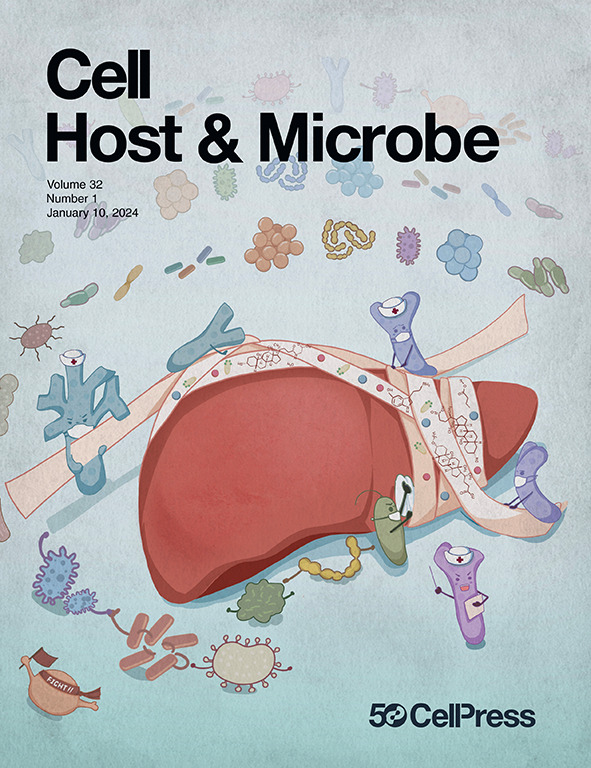改变微生物组,个性化治疗菌群失调疾病
IF 20.6
1区 医学
Q1 MICROBIOLOGY
引用次数: 0
摘要
粪便微生物移植(FMT)治疗炎症性疾病或难治性免疫检查点抑制剂治疗的效果不如预防艰难梭菌感染复发的效果好。这篇评论概述了如何利用成功进行粪便微生物移植的生物标志物来指导更新的方法,以恢复菌群失调介导的炎症患者的微生物平衡。本文章由计算机程序翻译,如有差异,请以英文原文为准。
Microbiome modification for personalized treatment of dysbiotic diseases
Fecal microbial transplantation (FMT) for inflammatory diseases or refractory immune checkpoint inhibitor therapy is less effective than for preventing recurrent Clostridioides difficile infection. This commentary outlines strategies to use biomarkers of successful FMT to guide newer approaches to restore microbial homeostasis in individuals with dysbiosis-mediated inflammation.
求助全文
通过发布文献求助,成功后即可免费获取论文全文。
去求助
来源期刊

Cell host & microbe
生物-微生物学
CiteScore
45.10
自引率
1.70%
发文量
201
审稿时长
4-8 weeks
期刊介绍:
Cell Host & Microbe is a scientific journal that was launched in March 2007. The journal aims to provide a platform for scientists to exchange ideas and concepts related to the study of microbes and their interaction with host organisms at a molecular, cellular, and immune level. It publishes novel findings on a wide range of microorganisms including bacteria, fungi, parasites, and viruses. The journal focuses on the interface between the microbe and its host, whether the host is a vertebrate, invertebrate, or plant, and whether the microbe is pathogenic, non-pathogenic, or commensal. The integrated study of microbes and their interactions with each other, their host, and the cellular environment they inhabit is a unifying theme of the journal. The published work in Cell Host & Microbe is expected to be of exceptional significance within its field and also of interest to researchers in other areas. In addition to primary research articles, the journal features expert analysis, commentary, and reviews on current topics of interest in the field.
 求助内容:
求助内容: 应助结果提醒方式:
应助结果提醒方式:


